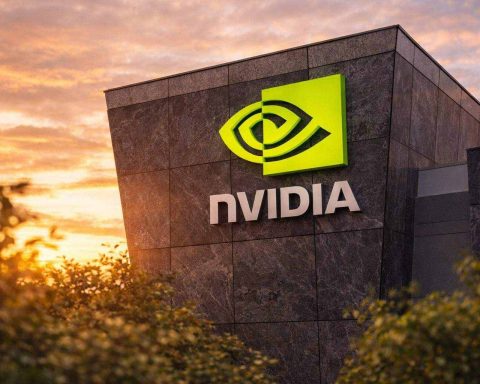- Morgan Stanley’s Move: The Wall Street giant announced it will acquire EquityZen – a marketplace for trading shares of private, pre-IPO companies – as it races to meet growing investor appetite for stakes in fast-growing startups reuters.com. The deal will let Morgan Stanley’s clients buy into hot startups or cash out startup equity before those companies go public wealthmanagement.com wealthmanagement.com.
- First Deal Under New CEO: This marks the first acquisition under CEO Ted Pick, who took the helm in late 2023 wealthmanagement.com. Pick had until now refrained from major deals, but signaled recently that with stronger capital levels, the firm could “consider carefully” acquisition opportunities that fit its strategy wealthmanagement.com.
- Why It’s Happening: Many tech “unicorns” are staying private longer, fueling demand for secondary share trading. For example, OpenAI – the world’s most valuable startup – is worth around $500 billion (bigger than all but 16 S&P 500 firms), leaving outside investors “clamoring for access” and employees eager to monetize their shares wealthmanagement.com. Major banks want to capitalize on this trend: by owning EquityZen, Morgan Stanley can capture trading fees, gain insight into private market valuations, and strengthen ties with wealthy clients seeking early-stage investments reuters.com.
- EquityZen at a Glance: Founded in 2013, EquityZen has over 800,000 registered users and has processed more than 49,000 private stock transactions across 450+ companies reuters.com. It connects startup employees or early investors looking to sell equity with accredited investors looking to buy. Morgan Stanley says adding this platform will enhance its “private markets ecosystem,” expanding services for private companies (like cap-table management, liquidity programs, and secondary trading) and giving Morgan’s 20 million wealth clients more access to pre-IPO shares finextra.com finextra.com.
- Executives & Integration:Morgan Stanley execs are bullish on private markets. “We are seeing rising interest in private markets exposure across our 20 million clients. EquityZen is the link that connects supply and demand,” said Michael Gaviser, the bank’s Head of Private Markets reuters.com. Jed Finn, Head of Morgan Stanley Wealth Management, added that the combination comes at “a critical time” as companies stay private longer, letting Morgan Stanley deliver “liquidity solutions for their employees and early investors in a seamless yet controlled process” finextra.com. EquityZen’s CEO Atish Davda said “this partnership isn’t about selling, it’s about scaling,” pledging to bring “private markets to the public” by leveraging Morgan Stanley’s vast client base marketscreener.com. The terms of the deal were not disclosed, and the roughly 50 EquityZen employees will join Morgan Stanley when the acquisition closes (expected in early 2026) reuters.com wealthmanagement.com.
- Stock & Market Reaction: Morgan Stanley’s stock (NYSE: MS) hovered around $165 per share this Wednesday, near all-time highs and up over 30% year-to-date marketscreener.com. Investors have cheered the bank’s performance – its Q3 profit jumped to $4.6 billion on record revenue ts2.tech – and analysts say Morgan Stanley is “executing very well across all segments” of its business ts2.tech. The EquityZen deal, while relatively small, underscores Morgan Stanley’s growth ambitions in new markets.
Private Markets Boom as Startups Stay Private Longer
Morgan Stanley’s EquityZen acquisition comes amid a broader private-market boom on Wall Street. In recent years, cash-rich startups have delayed going public, creating an “iceberg” of hidden value in the private markets. Firms like OpenAI, SpaceX and TikTok-parent ByteDance now hold valuations rivaling the largest public companies, blurring the line between Silicon Valley and the stock market reuters.com. This trend has two big side effects: investors are eager to get in early on the next breakout tech firm, and startup employees are seeking ways to cash out some of their stock awards without waiting for an IPO.
Banks and investment platforms have rushed to bridge this gap. EquityZen emerged as a pioneer in this space, creating a marketplace where accredited investors can buy pre-IPO shares from insiders of private companies. By acquiring EquityZen, Morgan Stanley aims to bring this capability in-house. Owning a private-stock trading platform lets the bank directly connect buyers and sellers — and profit from the fees and data generated. It also provides Morgan Stanley valuable insight into how high-growth startups are valued privately, which can inform the bank’s deal-making and wealth management advice reuters.com. Crucially, it deepens relationships with tech founders and early employees, who may become lucrative clients for the firm’s wealth management and IPO banking services down the road.
“Winning closely held companies and their executives as clients has become a key battleground for the biggest U.S. banks as many upstarts opt to stay private for longer,” notes Bloomberg, citing OpenAI’s $500 billion valuation as a stunning example wealthmanagement.com. In this environment, platforms like EquityZen provide a “link that connects supply and demand” between private companies and investors, as Morgan Stanley’s Michael Gaviser put it reuters.com. In other words, Morgan Stanley doesn’t just want to advise startups or take them public – it also wants to help trade their shares while they’re still private, capturing that business within the bank’s ecosystem.
Ted Pick’s Strategy: First Acquisition and Competitive Moves
Morgan Stanley’s purchase of EquityZen is the first acquisition under CEO Ted Pick wealthmanagement.com, who took over nearly two years ago after long-time CEO James Gorman stepped down. Pick inherited a bank that Gorman had transformed through a string of big acquisitions – from brokerage E*Trade to fund manager Eaton Vance to stock-plan administrator Solium Capital – all deals that broadened Morgan Stanley’s wealth and asset management reach wealthmanagement.com. In contrast, Pick has been patient on M&A, focusing on organic growth and shoring up capital. Earlier this month, he hinted that might change: after Morgan Stanley earned a favorable capital requirement adjustment from the Federal Reserve, Pick told analysts the firm can “consider carefully” whether any of the many deals “coming at us” are a good fit wealthmanagement.com. EquityZen appears to be one such fit, aligning with Morgan Stanley’s focus on serving affluent clients and tapping new markets.
Wall Street rivals are making similar plays. Goldman Sachs this month agreed to acquire venture capital firm Industry Ventures to bolster its footprint in private markets, and JPMorgan Chase has been aggressively courting startup founders – helped by its 2023 takeover of First Republic Bank, which had a strong Silicon Valley client base wealthmanagement.com. Meanwhile, established secondary marketplaces like Forge Global and Nasdaq Private Market have grown, and Nasdaq’s platform even counts banks (including Morgan Stanley) as partners. In short, big banks see opportunity in the swelling ranks of “pre-IPO” giants, and they don’t want to be left on the sidelines.
Against that backdrop, Morgan Stanley’s EquityZen deal sends a message. It signals that Morgan Stanley is doubling down on alternative investments and tech wealth. By integrating EquityZen, the bank can offer startup founders and employees a one-stop shop: Morgan Stanley can manage their company’s cap table and stock plans (through its existing Carta partnership and Solium unit) and now provide a controlled marketplace for those shares finextra.com wealthmanagement.com. “With EquityZen, we combine our cap table management solutions with a private shares marketplace to deliver end-to-end solutions,” said Morgan Stanley’s Jed Finn finextra.com. The approach keeps the issuer (the startup) at the center – companies can decide when and how their shares trade – addressing past concerns that secondary markets were Wild West affairs. Finn noted the deal “brings an institutional-grade infrastructure to a marketplace that hasn’t always been easy to navigate for buyers or sellers, and certainly not for the issuers” wealthmanagement.com. In other words, Morgan Stanley wants to legitimize and streamline private-stock trading, potentially making it more mainstream.
Outlook: New Opportunities and Risks Ahead
The EquityZen acquisition is slated to close by early 2026, pending regulatory approvals reuters.com. Morgan Stanley has not revealed what it’s paying, but Bloomberg reported a few years ago that EquityZen might have been valued at over $700 million in a sale – though fintech valuations have likely come down since then wealthmanagement.com. What we do know is that Morgan Stanley expects about $100 million in integration costs as it absorbs EquityZen’s technology and team wealthmanagement.com. Those 50 or so EquityZen employees in New York will join the bank to help build out its private markets platform wealthmanagement.com.
For Morgan Stanley’s bottom line, this deal isn’t massive in the near term – but it could pay dividends over time. Each private share trade will generate fees, and the bank could attract more wealth management assets from tech insiders looking for liquidity. Morgan Stanley’s wealth unit already oversees a colossal $8.9 trillion in client assets reuters.com, and private-market investments are becoming a bigger part of that pie. By plugging EquityZen into its network, Morgan Stanley could become the go-to provider for pre-IPO liquidity programs, which might also win it mandates when those startups eventually IPO or seek other banking services.
Still, diving into private equities comes with risks. These investments are illiquid and often high-risk – not all startups live up to their sky-high valuations. Morgan Stanley will need to ensure trades remain “company-approved” and compliant wealthmanagement.com, and that clients understand the pitfalls of pre-IPO investing. The bank’s vast resources and experience should help manage these challenges, and its leaders sound confident. “Our entire mission has been to bring private markets to the public,” said EquityZen CEO Atish Davda, “and by integrating into Morgan Stanley, we will reach more investors and shareholders than ever before” wealthmanagement.com.
As big banks embrace private assets, some analysts see it as a natural evolution. Traditional stock and bond markets have been lackluster at times, whereas the private market is where many of the most explosive growth stories are happening. Morgan Stanley’s strong financial position has given it the firepower to venture into this arena – its most recent quarter blew past expectations, and “Morgan Stanley is executing very well across all segments,” observes portfolio manager Macrae Sykes ts2.tech. The firm’s share price reflects that optimism, hovering near record highs marketscreener.com. Now the question is whether moves like the EquityZen buy will keep that momentum going by opening up new revenue streams and fortifying Morgan Stanley’s reputation as a forward-looking financial partner for the tech elite.
One thing is clear: as startups remain private powerhouses, Wall Street is determined to get in on the action. Morgan Stanley’s bet on EquityZen shows that even a 88-year-old investment bank can adapt to Silicon Valley’s “stay-private” era – and that Ted Pick is willing to make bold moves to ensure Morgan Stanley stays ahead of the curve in serving the investors and innovators of tomorrow. reuters.com wealthmanagement.co









